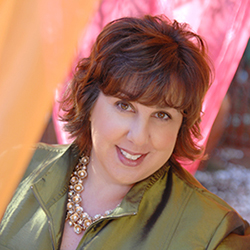Reaching A Milestone
 This month marks a significant milestone for The Center for Health Design’s Evidence-based Design Accreditation and Certification (EDAC) program: the 3,000th person has become EDAC certified.
This month marks a significant milestone for The Center for Health Design’s Evidence-based Design Accreditation and Certification (EDAC) program: the 3,000th person has become EDAC certified.
Evidence-based design (EBD) is the process of basing decisions about the built environment on credible research to achieve the best possible outcomes. EDAC credentials are awarded to individuals who demonstrate an understanding of how to apply the EBD process, including measuring and reporting out the results of the developed hypotheses. Candidates earn their EDAC credential by passing the EDAC exam, which tests individuals on the process of designing and developing healthcare settings using the EBD process. Passing the exam distinguishes their knowledge and their practice of EBD in healthcare design.
The program launched in 2009, but its roots date back to 2004, when it was first floated by Kirk Hamilton, an architect and current professor of health facilities design in the College of Architecture at Texas A& M University, during a strategy session at The Center’s board of director’s meeting. A year later, The Center earned a grant from the Robert Wood Johnson Foundation (RWJF) to start the long and meticulous process of creating a certification and accreditation program, under the strict supervision of a psychometrician to maintain the validity of the credential. RWJF also provided additional funding to create and publish a base of knowledge document that would become the foundation for the EDAC exam and early study materials. In 2007, Steelcase Health became the exclusive educational partner for the program and has been providing funding for its continued growth and study materials ever since.
Getting to this point was not an easy task and wouldn’t have been possible without the work of a small group of dedicated Center staff led by Donna Deckard, director of strategic projects, and a large group of volunteers who continue to devote countless hours to the improvement and growth of the EDAC program. Together, this EDAC Advisory Council is as diverse as our industry, with representation from research, design, healthcare, and academia. These forward-thinking individuals help
The Center continue to improve the exam and study materials as well as expand the content to keep EDAC relevant as our industry changes and grows. Currently, the group is working on expanding project examples and study materials to more broadly reflect the diversity of healthcare projects. Furthermore, each year The Center’s EDAC team and Advisory Council create additional tools to help candidates prepare for the exam. Over the years, The Center has added flashcards, videos, online training programs, and one-on-one coaching sessions to our three study guides.
Understanding the EBD process is especially important in today’s world. It allows teams to focus design decisions to create optimal function in healthcare settings, producing preferred health outcomes and helping to mitigate risk. EBD also encourages the idea of creating interdisciplinary teams at the very start of a new project, to provide valuable insights from multiple perspectives including hospital board members and senior management, researchers, design teams, patients, families, staff, contractors, vendors, and community partners.
Through the years, the EDAC program has built a global community of connected individuals from 34 different countries who understand the importance of designing environments using the most relevant research as a foundation to inform their overall project and specific design decisions. This community is unique in that it also actively creates and shares both new research and feedback on the impact design had on patient, family, and staff outcomes, providing a body of knowledge for future generations of design decision-makers.
Debra Levin is president and CEO of The Center for Health Design. She can be reached at dlevin@healthdesign.org.

